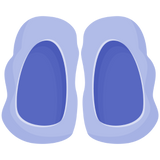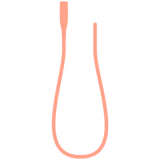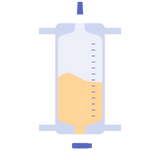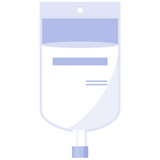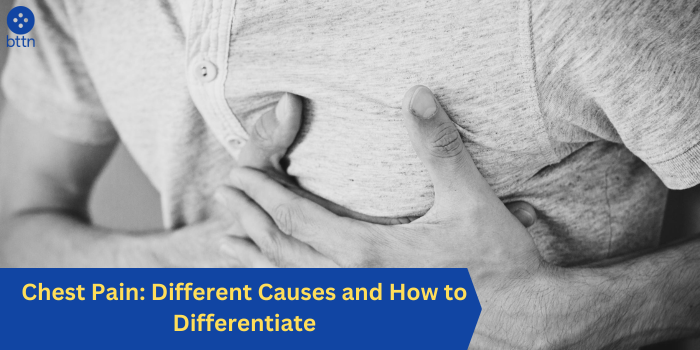
Chest Pain: Different Causes and How to Differentiate
Posted by Pankaj Dhiman on Sep 26th 2023
Chest pain can send anyone into a panic. Whether it's a sudden, sharp pain or a dull, persistent ache, it's natural to fear the worst: a heart attack. However, not all chest pain indicates a cardiac issue. In this comprehensive guide, we'll delve into the different causes of chest pain, focusing on heart-related causes, gastrointestinal issues, lung problems, and muscle or bone-related factors. By the end, you'll have a better understanding of what might be causing your chest discomfort and how to differentiate between various sources of pain.
Must Read - Understanding Asthma: 10 Practical Tips to Manage Your Condition
What is chest pain?
Chest pain refers to any discomfort or pain felt in the area between your neck and upper abdomen. It can vary in intensity, duration, and quality, making it essential to differentiate between different types of chest pain to determine the underlying cause. Chest pain is a common symptom, and while it can be frightening, it doesn't always signify a serious medical condition.
Must Read - Top 10 Most Common Chronic Diseases in the U.S. and How to Prevent Them
What causes chest pain?
Chest pain can result from various factors, including heart-related issues, gastrointestinal problems, lung disorders, muscle strains, and more. Understanding the potential causes is crucial for determining whether your chest pain is a matter of concern or not.
Heart-related causes of chest pain
- Angina: Angina occurs when the heart doesn't receive enough blood, usually due to narrowed coronary arteries. It results in chest pain or discomfort, often triggered by physical exertion or stress. This pain is often described as a squeezing or pressure-like sensation in the chest.
- Heart Attack: A heart attack happens when a coronary artery is blocked, causing damage to the heart muscle. The chest pain during a heart attack is typically severe, crushing, or squeezing and may be accompanied by other symptoms like shortness of breath, nausea, and pain radiating to the arm, neck, jaw, or back.
Must Read - IV Medical Equipment & Supplies - Top 10 Best-Selling Products
Gastrointestinal causes of chest pain
- Gastroesophageal Reflux Disease (GERD): GERD is a common cause of chest pain and is related to the reflux of stomach acid into the esophagus. The pain is often described as burning or a discomfort behind the breastbone and can worsen after eating, lying down, or bending over.
- Peptic Ulcer Disease: Chest pain can also result from peptic ulcers, which are open sores in the lining of the stomach or duodenum. The pain is typically felt in the upper abdomen but can sometimes radiate to the chest.
Must Read - Knee Pain - Symptoms, Causes, Risk Factors, and Treatment
Lung-related causes of chest pain
- Pleurisy: Inflammation of the lining around the lungs (pleura) can cause sharp, stabbing chest pain that worsens with breathing or coughing.
- Pneumonia: Chest pain can accompany lung infections like pneumonia, usually along with symptoms like cough, fever, and difficulty breathing.
Must Read - Lung Cancer: Causes, Symptoms, Treatment and New Research
Muscle or bone-related causes of chest pain
- Muscle Strain: Overexertion or trauma to the chest muscles can lead to chest pain, which often feels like a dull ache and worsens with movement.
- Costochondritis: This condition involves inflammation of the cartilage that connects the ribs to the breastbone. It results in sharp, localized chest pain that worsens with deep breaths or physical activity.
How to identify if chest pain is heart-related?
Distinguishing between heart-related chest pain and pain originating from other sources is crucial for prompt medical attention. Here are some key factors to consider:
- Location of Pain: Heart-related chest pain often centers around the sternum (breastbone), while other types of chest pain might be more localized or felt higher up in the chest.
- Quality of Pain: Heart-related pain is often described as pressure, squeezing, or tightness, whereas other types of chest pain may be sharp, burning, or aching.
- Duration: Chest pain due to a heart attack typically lasts longer than 15 minutes and may come and go. Pain from other causes may be brief or persist for a more extended period.
- Triggers: Heart-related pain may be triggered by physical exertion or stress, while other types of pain may be influenced by factors like eating, lying down, or movement.
- Associated Symptoms: Heart-related chest pain is often accompanied by symptoms like shortness of breath, nausea, cold sweats, and pain radiating to the left arm, neck, jaw, or back.
If you suspect that your chest pain is heart-related, it's crucial to seek immediate medical attention. Never ignore severe or persistent chest pain.
Must Read - Heart and Lung Breathlessness: Causes, Symptoms, and Prevention
Tips for Chest Pain
While not all chest pain is a cause for alarm, it's essential to take any discomfort seriously, especially if you have risk factors for heart disease. Here are some tips to consider:
- Know Your Risk Factors: If you have a family history of heart disease, high blood pressure, diabetes, or other risk factors, be vigilant about chest pain and regularly monitor your heart health.
- Maintain a Healthy Lifestyle: Adopt a heart-healthy lifestyle by eating a balanced diet, exercising regularly, managing stress, and avoiding smoking or excessive alcohol consumption.
- Stay Informed: Educate yourself about the different types of chest pain and their associated symptoms to better differentiate between benign and potentially serious discomfort.
- Seek Medical Advice: If you're unsure about the cause of your chest pain or if it's severe and persistent, don't hesitate to seek medical attention. Early intervention can be life-saving in the case of a heart attack.
- Follow Medical Recommendations: If you've been diagnosed with a heart condition or another underlying issue, adhere to your doctor's recommendations, take prescribed medications, and attend regular check-ups.
In conclusion, chest pain is a common symptom with various potential causes. While it's natural to be concerned, not all chest pain indicates a heart problem. Understanding the different sources of chest pain and recognizing the key factors that distinguish heart-related pain from other types is essential for your peace of mind and overall well-being. If in doubt, always err on the side of caution and seek medical evaluation, as prompt action can make a significant difference in potential life-threatening situations. Your health is worth it






